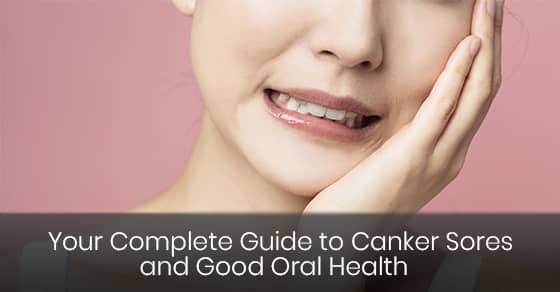
You might not realize it, but the mouth is one of the most sensitive parts of the body and it’s not at all great when you’re dealing with something like a sensitive tooth or a sore. One of the worst feelings is not even being able to enjoy your favourite foods because of this. But a lot of times, you don’t even know what exactly is going on until you try to take a bite.
One example is when you take a bite of something hot or a sip of your drink and you instantly feel a sharp sting in your gums. Chances are, you’re dealing with a canker sore. Canker sores are found inside the mouth, such as on the lips, tongue, or the inside of the cheeks and cause an uncomfortable tingling sensation. These sores take a nasty turn when they start swelling.
Are you feeling a tingling sensation in your gums when you dig into your lunch? Learn all about canker sores and how to make them go away:
According to dentists who treat patients for canker sores, these can be caused by any number of things, both arising from oral health problems and other conditions:
Any of these factors—or a combination of them—can easily cause those pesky round ulcers to develop on your lips, tongue, the lining of your cheeks, or even along the gumline. And you’ll know that they’re there the moment you feel a tingling sensation or sharp pain when you take a bite.
Biting into something extremely hot or taking a sip out of a frozen drink can also cause tingling feelings, often revealing sensitive teeth. That’s why it’s important to distinguish between tingling sensations when they occur to know whether it’s just sensitivity or an actual canker sore.
Canker sores look like round ulcers on the tongue, the inside of the cheeks, on the lips, and at the base of the gumline. As a result, anytime that you eat something hot, full of citrus, acidic, or spicy, you become aware of canker sores nesting inside your mouth becoming swollen and pronounced, feeling anywhere between a tingling sensation to pain and discomfort. On the upside, a quick dietary adjustment can prevent painful breakouts. Switching up your diet in favour of vitamin- and mineral-rich foods like salmon, parsley, kale, carrots, spinach, and yogurt can help to prevent pain and discomfort from canker sores, as well as preventing them from developing in the first place. All that is possible because of the vitamin B12, folate, and iron in those foods.
The long and short of it is that canker sores usually heal on their own anywhere between one to two weeks. However, some sores are more pesky than others. Luckily, the discomfort isn’t something that can’t go away with an easy fix. For particularly stubborn canker sores, you can try an over-the-counter topical anesthetic, as well as getting in the habit of using an antimicrobial mouthwash. These should both take care of pesky canker sores when they act up and provide relief from the discomfort they cause.
At the end of the day, no one really wants to deal with canker sores, ever. That’s why the best thing to do is to take care of your oral health consistently, so that these sores wouldn’t have room to grow in to begin with. To create a healthy oral environment, think of switching to a soft-bristled toothbrush to use after hearty meals and make sure to floss daily. A soft-bristled brush, in particular, prevents injuries to the mouth, especially those caused by improper or aggressive brushing, which is one of the causes of canker sores. Good oral health also keeps your gums clean and healthy, which reduces the risk of infections and ulcers, like canker sores.
Canker sores and other types of ulcers and infections are all indicators of oral health that need a bit of extra attention to get back in shape. And while canker sores can also be caused by factors outside your control, like allergies and hormonal fluctuations, there’s a lot more going on that your dentist can help you with.
With regular dental checkups and cleanings, your dentist can help to manage the causes and symptoms of canker sores and help you adapt better oral health habits. Sores in the mouth can also be caused by sensitivity to some dental ingredients that are actually part of your daily routine—and you didn’t even know that. For instance, some toothpastes are made with sodium lauryl sulfate, which can exacerbate discomfort from existing sores. That’s why it’s important to ask your dentist about managing canker sores and other types of oral infections. It doesn’t matter how much kale or salmon you eat to bring up vitamin B12, folate, and iron levels, if you’re still using products that you may be sensitive to. That doesn’t stop you from experiencing pain and discomfort from sores. But with regular dental checkups, you can practice good oral health habits and get the right oral medication to remedy canker sores and other infections for good.
Don’t let pesky sores ruin your bright smile. Learn how regular dental checkups and cleanings can restore good oral health and keep pesky infections away for good. Call Oakville Place Dental Office today at 905-842-6030 or contact us here to book an appointment.
 0 Comment
0 Comment